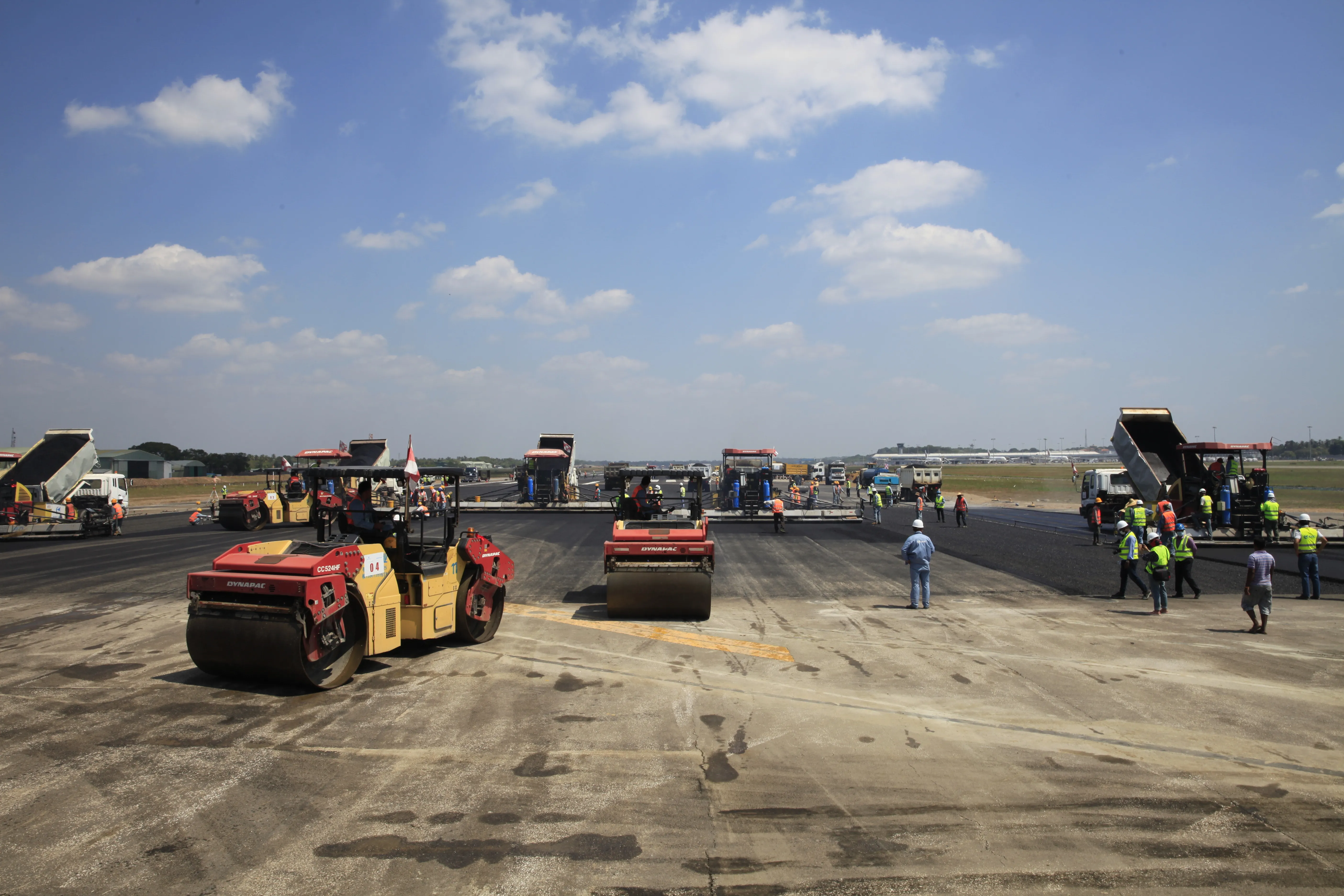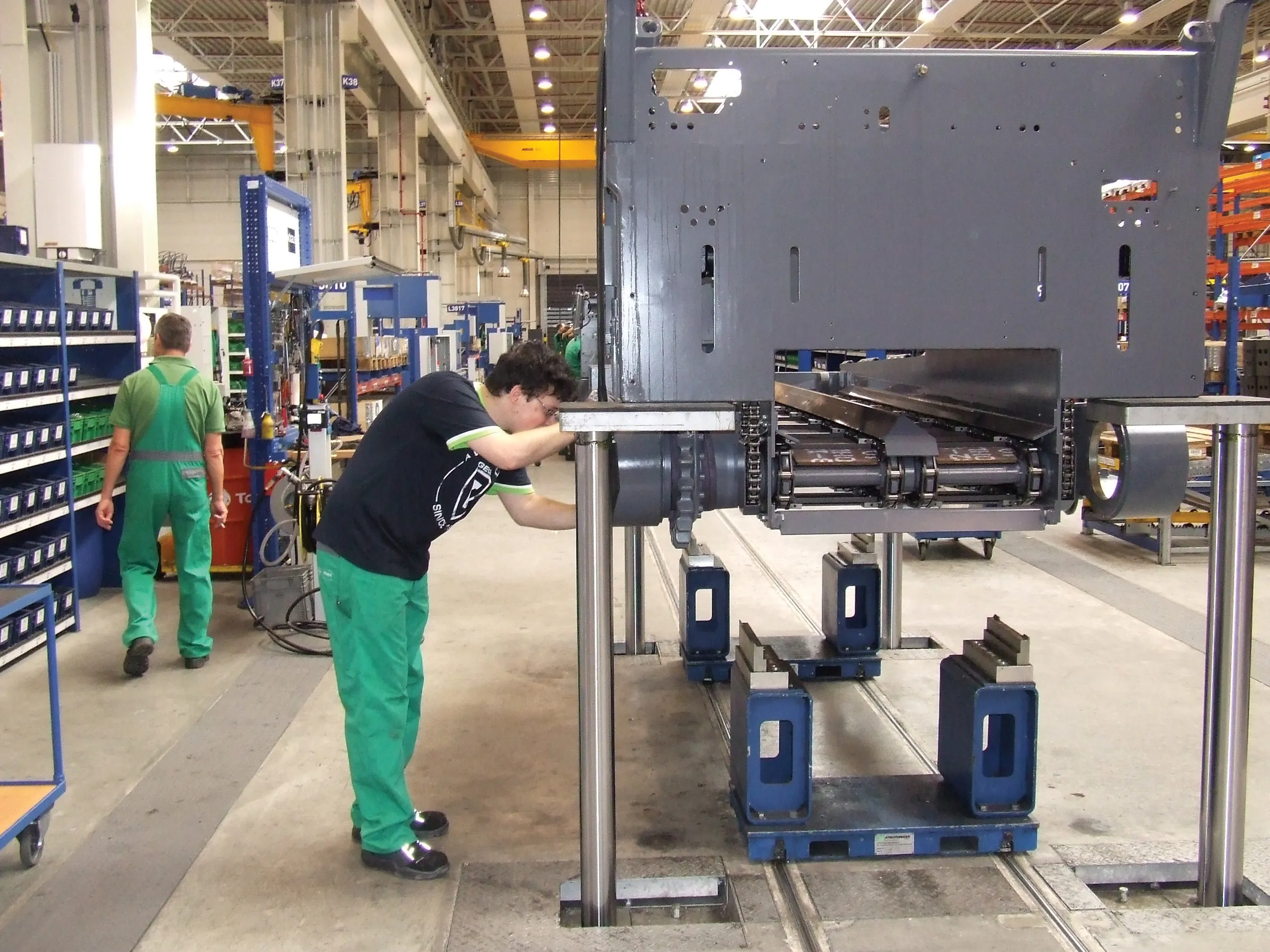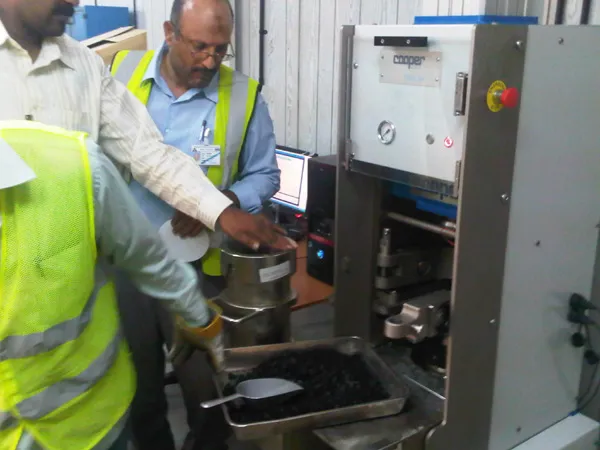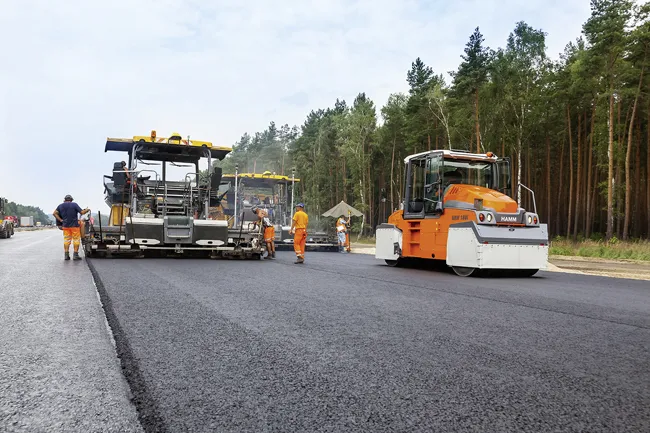A new Cat AP600F paver used by Maltese contractor Bonnici Brothers has helped with important resurfacing work at Malta’s International Airport. The machine was able to carry out the paving job within a tight time frame, due to its high productivity.
The work was needed at the airport as part of a programme to increase its capacity. Malta is seeing growth in passenger numbers at the airport from both business travellers and tourists and there was a need to upgrade the facility.
Local contractor Bonnic
August 23, 2016
Read time: 4 mins
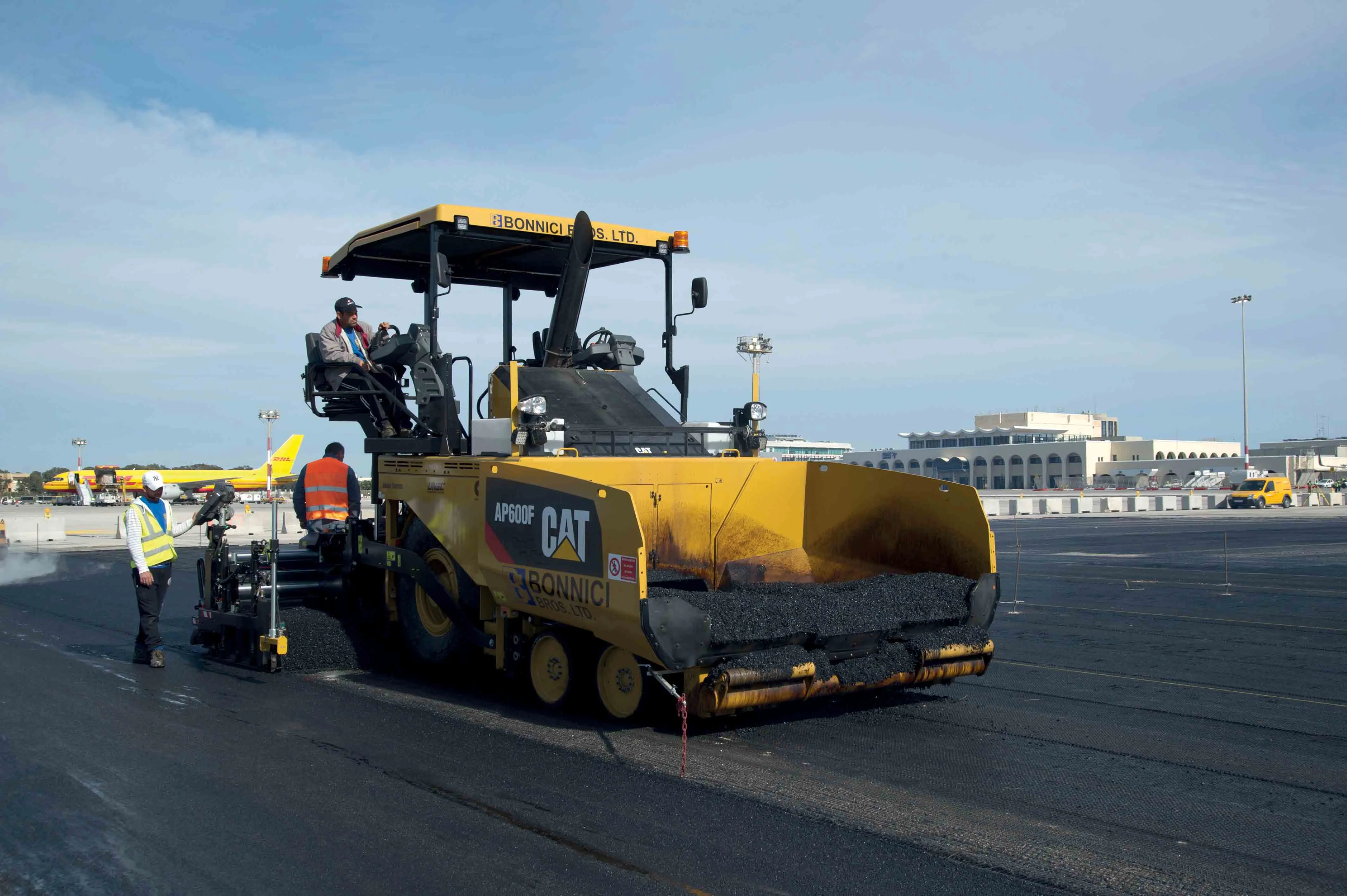
A new 4018 Caterpillar Paving's Cat AP600F paver used by Maltese contractor Bonnici Brothers has helped with important resurfacing work at Malta’s International Airport. The machine was able to carry out the paving job within a tight time frame, due to its high productivity.
The work was needed at the airport as part of a programme to increase its capacity. Malta is seeing growth in passenger numbers at the airport from both business travellers and tourists and there was a need to upgrade the facility.
Local contractor Bonnici Brothers has been active in the earthmoving sector since its formation in 1978, having expanded its operations to include quarrying and road construction also. The firm has strong links with Caterpillar, which is reflected in the equipment in its substantial fleet of earthmoving and road-building equipment.
As well as the Cat ADTs, wheeled loaders, excavators and compactors, the Bonnici Brothers also has an AP655D paver and when the firm decided to buy an additional asphalt paver, it opted for a new AP600F model.
The first job for the new AP600F was on a key contract at Malta International Airport. As part of the expansion programme at the airport, work has been carried out to resurface 35,000m2 of Apron 9. This job was carried out successfully in two phases during the day. The contract saw Bonnici Brothers mill off the old apron surface, apply a glass grid and then lay the new surface. In total some 1,200tonnes of new material was laid by the AP600F in two layers, with a 60mm binder course and then a 50mm wearing course on top. This was Phase 1 of the project. Phase 2 of the job is for the paving of a further 1,200tonnes, which is due for completion in October 2016.
The versatile wheeled paver features a quick-heating electric screed system powered by an integral generator that increases production while reducing crew idle time, which the firm said came in useful for the work. Bonnici Brothers specified the paver with a Cat SE50 VT screed, which has both vibratory and tamping bars and offers width ranges from 2.55 to 5m. The screed can reach working temperature from cold (5°C to 130°C) in 15 minutes, which assisted the high productivity targets required. To aid paving accuracy, the contractor also specified the new AP600F with the fully integrated Cat Grade Control, another feature that came in useful for the project.
Supplied from one of Bonnici Brothers’ own batching plants, the material specification was a modified bitumen with basalt (0–4mm, 4–8mm, 8–12mm). To transport all the material the 10km between the asphalt plant and the airport, the contractor used six of its own tipper trucks, with bodies supplied by UNEC, a sister company that is part of the Bonnici Group.
Compaction was efficiently carried out by a number of different rollers owned by Bonnici Brothers. These included three Cat machines – a CB32 lightweight vibratory tandem, a CD44B heavy-weight vibratory tandem and a pneumatic tyred roller.
To compact the binder, four passes were made by the rollers. The 3tonne CB32 was used for the first two passes, initially without vibration and then with vibration. The 7tonne CD44B carried out the third pass with vibration and finally the rubber tyred roller was used for the finishing pass.
The wearing course was first compacted by the CB32 without vibration, with the second pass provided by the same machine with vibration switched on. Pass three was by the CD44B with vibration, while the fourth and final pass was with the rubber tyred roller. The absence of vibration on the initial passes was due to the use of the modified bitumen.
Further infrastructure upgrades are planned in Malta, backed by EU funding, and Bonnici Brothers is keen to use the paver for other work in the future.
The work was needed at the airport as part of a programme to increase its capacity. Malta is seeing growth in passenger numbers at the airport from both business travellers and tourists and there was a need to upgrade the facility.
Local contractor Bonnici Brothers has been active in the earthmoving sector since its formation in 1978, having expanded its operations to include quarrying and road construction also. The firm has strong links with Caterpillar, which is reflected in the equipment in its substantial fleet of earthmoving and road-building equipment.
As well as the Cat ADTs, wheeled loaders, excavators and compactors, the Bonnici Brothers also has an AP655D paver and when the firm decided to buy an additional asphalt paver, it opted for a new AP600F model.
The first job for the new AP600F was on a key contract at Malta International Airport. As part of the expansion programme at the airport, work has been carried out to resurface 35,000m2 of Apron 9. This job was carried out successfully in two phases during the day. The contract saw Bonnici Brothers mill off the old apron surface, apply a glass grid and then lay the new surface. In total some 1,200tonnes of new material was laid by the AP600F in two layers, with a 60mm binder course and then a 50mm wearing course on top. This was Phase 1 of the project. Phase 2 of the job is for the paving of a further 1,200tonnes, which is due for completion in October 2016.
The versatile wheeled paver features a quick-heating electric screed system powered by an integral generator that increases production while reducing crew idle time, which the firm said came in useful for the work. Bonnici Brothers specified the paver with a Cat SE50 VT screed, which has both vibratory and tamping bars and offers width ranges from 2.55 to 5m. The screed can reach working temperature from cold (5°C to 130°C) in 15 minutes, which assisted the high productivity targets required. To aid paving accuracy, the contractor also specified the new AP600F with the fully integrated Cat Grade Control, another feature that came in useful for the project.
Supplied from one of Bonnici Brothers’ own batching plants, the material specification was a modified bitumen with basalt (0–4mm, 4–8mm, 8–12mm). To transport all the material the 10km between the asphalt plant and the airport, the contractor used six of its own tipper trucks, with bodies supplied by UNEC, a sister company that is part of the Bonnici Group.
Compaction was efficiently carried out by a number of different rollers owned by Bonnici Brothers. These included three Cat machines – a CB32 lightweight vibratory tandem, a CD44B heavy-weight vibratory tandem and a pneumatic tyred roller.
To compact the binder, four passes were made by the rollers. The 3tonne CB32 was used for the first two passes, initially without vibration and then with vibration. The 7tonne CD44B carried out the third pass with vibration and finally the rubber tyred roller was used for the finishing pass.
The wearing course was first compacted by the CB32 without vibration, with the second pass provided by the same machine with vibration switched on. Pass three was by the CD44B with vibration, while the fourth and final pass was with the rubber tyred roller. The absence of vibration on the initial passes was due to the use of the modified bitumen.
Further infrastructure upgrades are planned in Malta, backed by EU funding, and Bonnici Brothers is keen to use the paver for other work in the future.


